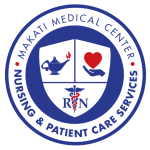About the Nursing Division

The Nursing and Patient Care Services (NPCS) is composed of centralized and decentralized structures and functions. The Division’s governance model adheres to the International Scope and Standards for Nurse Administrators.
The Office of the Chief Nursing Officer & Director, in partnership with the Assistant Directors, Clinical Department Managers, Program Managers, and Nurse Managers provide leadership and oversee the centralized functions of the Division’s nursing units.
The CNO & Director is ultimately responsible for the provision of nursing care across the Hospital.
The Division is divided into four (4) Specialty groups:
General Nursing Services
- General Medicine 1
- General Medicine 2
- High Risk Nursing
- Maternity and VIP
Specialty Nursing Services
- Newborn and Pediatric
- Adult Critical Care
- Cancer Center
- Organ Transplant
- Renal Care
- Emergency Nursing
- Maternity Services and Endoscopy
- Operative Services and Central Sterilization Unit
- Cardiac Catheterization Laboratory & Clinical Support Care
Nursing Support Services
- Nursing Standards and Policy
- Nursing Quality
- Nursing Education, Research and Development
- Nursing Workforce Management, Budget and Informatics
- Admission Unit
Clinical Operation
- Operative and Outpatient Services
- Emergency Operation
The Nursing Support Services work closely with the nursing leadership and staff members to continue advancing nursing practices and improve patient outcomes.
Nurses in Makati Med are effective leaders in healthcare. They are with the patient at the bedside and in the midst of the team — doctors, pharmacists, therapists, lab technologists etc. Nursing Leadership ensures that the delivery of care is safe, efficient, timely and quality.
CHIEF NURSING OFFICER (CNO) & DIRECTOR
Acting as the “Captain” of the Ship, the CNO’s role is to strategically position and progress the nursing practice and welfare of nurses as well as support teams. The CNO effectively empowers and inspires leaders, nurses, and personnel to deliver safe, quality, compassionate individualized care to patients and guests. The CNO is a professional nursing executive, a patient safety and experience advocate, a role model for all nurses, an education and innovation driver, and a beacon of transformational leadership.
ASSITANT DIRECTORS (or AVPs) of NURSING
Leading each of the four (4) Groups in Nursing (namely General Nursing, Specialty Nursing, Nursing Support & Excellence, and Clinical Operations & Innovations), the AVP’s role is to engage innovative and sustainable programs, directly manage and develop their Departments, and align clinical outcomes and financial output with MMC’s success goals. The AVP serves as the implementing arm of the Nursing Division’s strategic plans.
CLINICAL DEPARTMENT MANAGERS (CDM)
Covering a specific area of expertise, the Clinical Department Managers are in-charge of day-to-day clinical operations, quality, patient safety, patient experience and improvements of all Units and Centers under their scope. These specialized experts work closely with physicians and allied health leaders and teams to implement efficient and effective healthcare services. The CDMs ensure specialty-specific operational targets are met and exceeded, and specialized advancement is targeted for their staff.
PROGRAM MANAGERS (PM)
As department managers of the Nursing Support & Clinical Excellence group, the PMs are directly responsible for designing, implementing, and evaluating programs and initiatives on Education, Research, Quality, Continuous Improvement, Practice Innovation, Standards & Policy, Accreditations, Workforce Management, Bed Management and Nursing Informatics.
DEPARTMENT MANAGER (DM) of ADMISSIONS SERVICES
The point of entrance for inpatients is the Admitting Office. The DM of Admissions Services ensures efficient and timely processing of admissions for all patients. The DM is responsible for daily operations of the Admitting Office, resolution of conflicts and continuous improvement.
NURSE SHIFT MANAGERS (NSM)
The NSM act as the administrator and chief supervisor during hospital hours when the executive nursing leadership are not around. They enforce and decide with concurrence to policy, standards, and leadership guidance. The NSMs supervise operations, safety, patient experience, workforce and bed management, and representation of the entire Nursing Leadership during the scope of their duty.
ASSISTANT OPERATIONS MANAGER (AOM)
In-charge of the Center’s profitability, systems and innovations, the AOMs monitor and scrutinize census, finances, equipment, supplies, inventory, and patient bills. The AOMs are responsible for keen and creative process improvements, collaboration with physician and clinical groups, and coordination with corporate operations. The AOMs supervise patient-facing front line service personnel for the best patient experience and ease of care delivery.
SUPPORT OFFICERS
As part of the pool of experts and managers in the Nursing Support & Clinical Excellence teams, the officers provide direct work on staffing, manpower, bed management, policy and standards revisions, quality metrics management, informatics education, healthcare innovations, nursing research and systems conflict resolutions.
NURSE EDUCATOR (NE)
The NEs are the first contact for new-hire orientation and training, and for continuing education. They design, conduct and review programs, conferences, nursing events, learning materials, and education-related policies. They seek and develop subject matter experts, and guide Preceptors, Clinical Coaches, and trainers. NEs link MMC Nursing with professional partnerships, school affiliations and other agencies, hospitals and organizations.
NURSE MANAGERS (NM)
Assigned with a specific nursing care unit or a Center, the NM is the direct line-manager responsible for daily operations, patient interactions, financial management, and professional development of the nurses and support personnel in the Unit. The NM supervises, mentors, and evaluates all employees under the assigned span of control. The NM serves as quality, safety, compliance, innovation, and education champions of the Division and the Hospital.
ROOM COORDINATORS (RC)
As part of the Admissions team, the RCs ensure proper and timely patient placement in clinical units. They seamlessly coordinate and communicate with physicians, nursing teams, billing, HMO (Health Maintenance Organization) liaisons etc. As team leaders, the RCs supervise patient-facing front line admissions staff.
CHARGE NURSES (CN) and PATIENT CARE COORDINATORS (PCC)
As part of the daily operations of the nursing care unit or Centers, the CNs and PCCs directly coordinate patient care among the other departments (such as surgery, diagnostics, laboratory, pharmacy, dietary, inventory, billing, etc.). They are the front-line Nursing Leadership functioning as unit shift team leaders.

